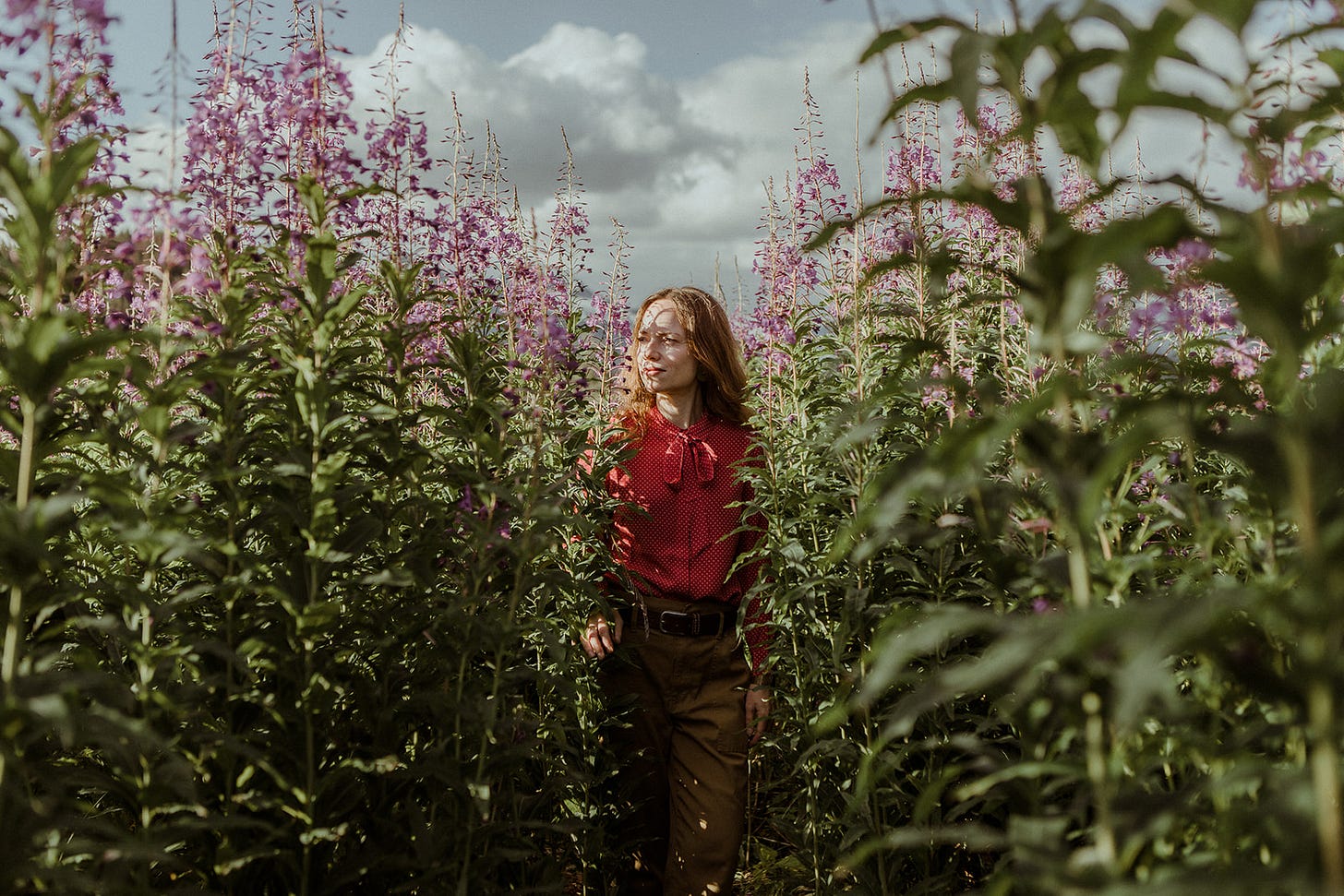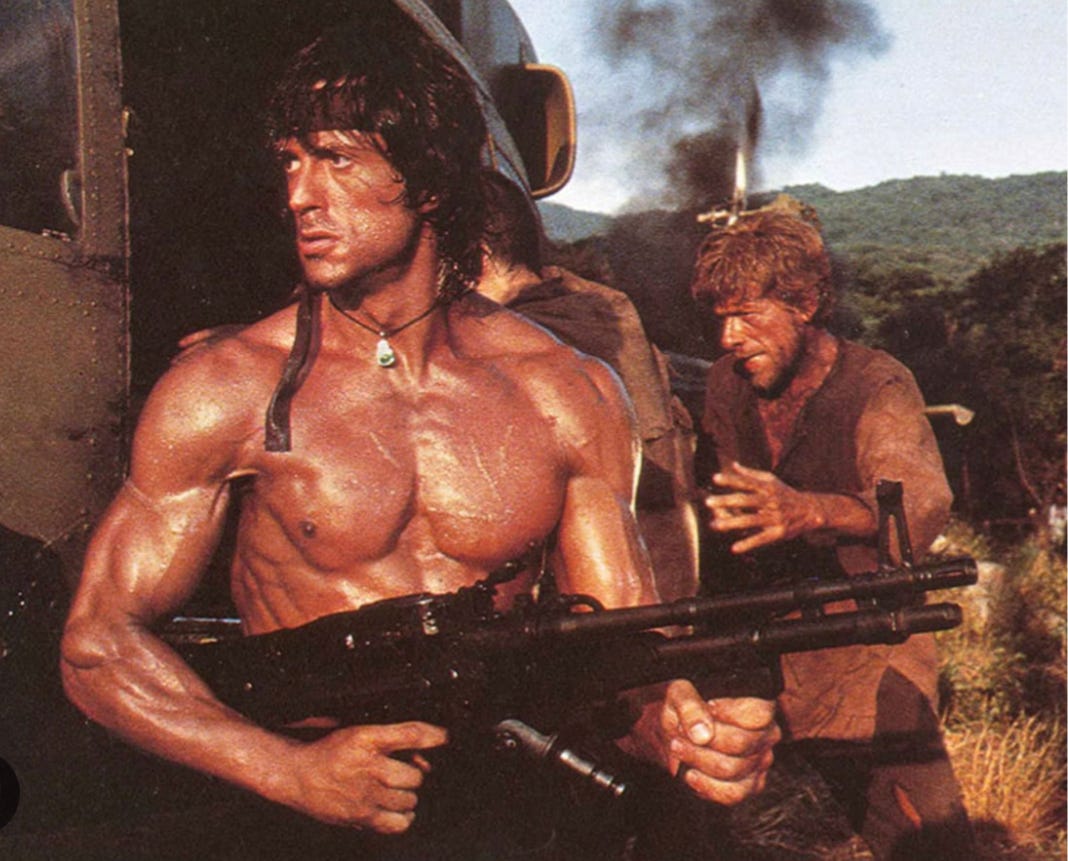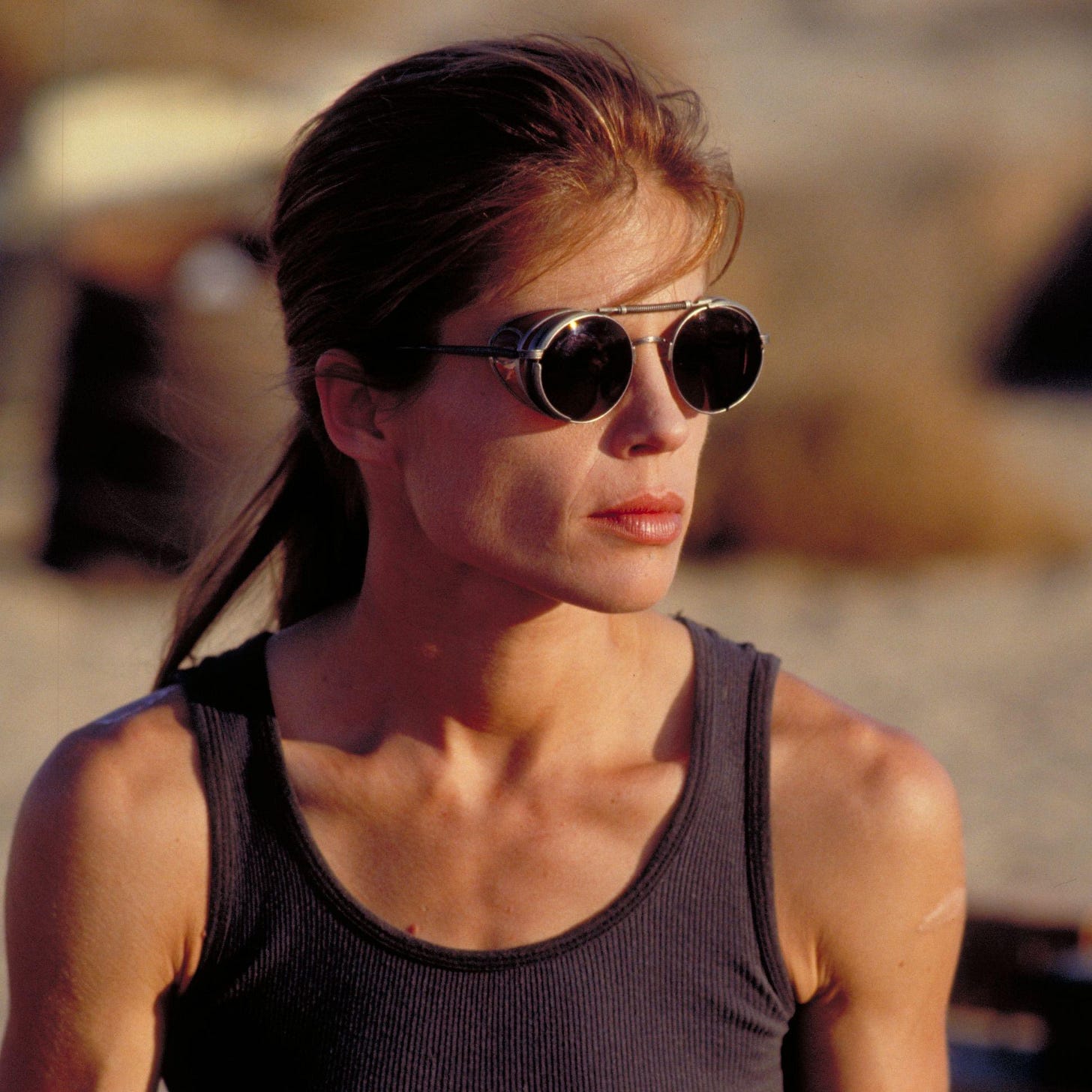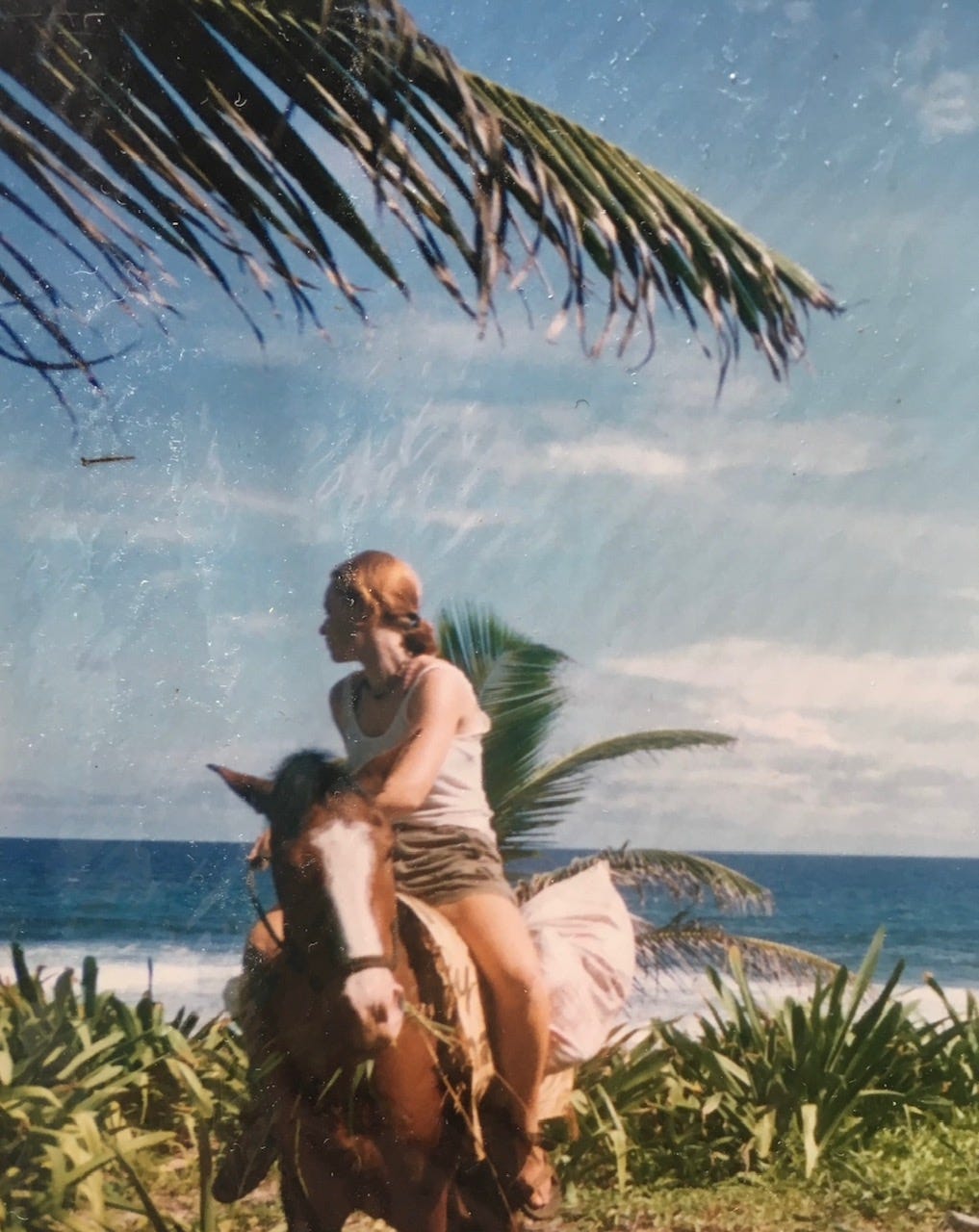When I named this space Feral Stack on a whim, I had my reasons. I’ve always navigated culture with tension and curiosity. As a child, I thought I was an alien sent to Earth to study humans, then later went on to study culture as an undergrad.
My parents, WASP intellectuals from California, raised me with their open-minded, optimistic, genteel, and bourgeois Californian values, which, bless them, did little to prepare me for the culture of Out the Road Alaska circa the 80s.
This era was when Leave It To Beaver was replaced with feminism (gratefully). Women were promised they could Have It All and, in turn, Do It All. Mothers entered the workforce in droves while still playing the roles of caregivers, boo-boo-soothers, and emotional laborers. This left an entire generation, also known as Generation X, raised by babysitters and matriarchs with thin patience for needy children‘s feelings.
As more people entered the workforce, the insatiable appetite for the hamster wheel grew and grew until it became what we all know and love as the 80s. Greed is sexy. Hypercapitalism manifests into hyper-color shirts, hyper-hair, cocaine-fueled parties, douchebaggery, and a hole in the ozone from all that hairspray. (I have a B.A. in culture, so I would know. I got letters.) We also got some fantastic masochistic children’s movies.
In those days, Alaska, a.k.a. “The Last Frontier,” was ripe for the exploiting by good ole white boy Lone Ranger/ex-convict types, which I have written about here and here. This was when Alaskan Native culture was only taught one week a year in the schools, called “Alaska week,” before it became required learning for all educators.
Just as the phallus reigned in ancient Greece, ceremony in Alaska was laid at the altar of all things loud and noisy. These things often served as metaphorical penis extenders: lifted trucks with bangin’ sound systems, rager bonfires, and extra credit for smashing a beer bottle over your head. If you could jump over the bonfire, you could bump up against god. In high school, “bros before hoes” was The Way, “pussy” was a cuss word, and girls could be accepted if they were “tomboys” or “waifs”—small enough to still make a man’s nature feel impressive.

All of this is to say that having grown up sensitive, strange, neurodivergent, medically fragile, geographically isolated, lacking any cultural capital, testosterone, or male siblings/cousins/uncles/neighbors, and raised by unloving babysitters and loving but hard-working parents who encouraged my weirdness, did not align with the values of the surrounding macho, outdoorsy culture.
Cultural capital: the social assets of a person that promote social mobility in a stratified society
As an outlier, or, as the jocks liked to call me, “a freak,” I retreated into my imaginary world by transforming into other people on stage, burying my nose in picture books about ancient cultures, and writing hundreds of pages of historical fiction about strong and sensitive young women. (In white Alaska, strong and sensitive were not allowed to inhabit the same space—you were either one or the other.) I immersed myself in belly dance culture and lessons and decorated my room like a harem because women in those days were encouraged to have hips, and people worshipped a female divinity. (Femininity was divine—can you imagine?!)
Nothing could be farther from the world in which I lived. Here’s photographic evidence:
This is why, in my teens and twenties, I left the country for fifteen years, lived in Latin American and Caribbean cultures, and married outside my culture/language/ethnicity/socio-economic status. Transforming into others on stage taught me to shapeshift, so I switched up my language, body, behavior, aesthetics, and values.
This brings us to the present tense and this space, the Feral Stack.
fe·ral
/ˈferəl,ˈfirəl/
from Latin fera ‘wild animal’ (from ferus ‘wild’)
(especially of an animal) in a wild state, especially after escape from captivity or domestication.
In a world where domestication resembles conformity to a capitalistic, patriarchal system and where productivity undermines relationships, I like the idea of re-wilding and escape.
When I escaped my lonely, privileged WASPish life in Alaska and ventured to the Bay Islands of Honduras, I befriended people who were never colonized. The Garifuna were a mix of Indigenous Americans who fought off the Spanish colonizers and runaway Black slaves. A culture untouched by the usual trappings of capitalism, they lived off the land, embraced feeling and pleasure, and spoke little. In their world, time was different. Not a rushing river, quickly escaping and moving like in the U.S., but a still pool. A month in Utila felt like a year.
I began to question my learned white Alaskan-American values and behaviors. The following year, I lived in Kingston, Jamaica, and immersed myself in the world of dancehall reggae. There, I witnessed a different kind of brilliance and joined the movement protesting capitalist imperialism. I sang “burn down Babylon!” with the best of them.
Eventually, I would reject my upbringing and Euro-American culture entirely and move to Costa Rica. I’ll save that story for later, but you can read some of it in the piece I wrote for Hobart Pulp.
Stepping outside my culture for fifteen years, I’ve learned some things:
Culture is not truth; there are many ways to do it.
Culture is not always in our best interest.
I don’t have to go along with culture; I can do me and still get along with others.
I don’t need cultural capital or to look at others as a measurement tool for happiness or satisfaction.
I am insignificant.
I lead with curiosity, not fear.
(The more specific reflections of Euro-American capitalist culture will come later.)
This newsletter will explore connections between ideas, thoughts, and social behaviors. I say we because the comments y’all leave me so often could write their own newsletter.
Without defining any one way as “good” or “bad” (binary thinking is a cultural mindset that is unhelpful here), we will examine the dominant culture(s) we swim in, paying attention to how cultural behaviors and values influence our relationships with self, others, and the environment.
We will look outside the dominant Euro-American, neurotypical cultural norms for other ways to redirect our sacred energy that strengthens relationships with self, others, and the earth.
I’d give examples, but Substack is already telling me this email is too long, so it will have to wait for part 2.
Thank you for joining me on this journey!
THANK YOU to everyone who subscribes and reads this newsletter. It’s such a privilege to write and even more a privilege to be read!
Second, I am eternally grateful and humbled to those who opted into the paid subscription. Your contribution is the coal to my boiler and keeps me locomoting down endless tracks of idea exploration. Regardless of how you consume these words, welcome. Nuff love.
If you don’t know me, I am an award-winning writer, poet, activist, performing artist, neurodivergent mother of an autistic child, and a 20-year Alaskan teacher. I write humorously and poetically about culture and parenting (you can read it here).
I was named Summer because I was supposed to be born on the summer solstice, but I arrived a week later in a small beach cabin on a rocky Alaskan beach with help from an illegal midwife. Our house was called Chilkat Manor, and our dog was Tok. To this day, I have a strong aversion to any games that involve balls.
With 15 years of living in other cultures, two bicultural marriages, a BA in cultural anthropology, and a Master’s in Education, I am continually examining mainstream Euro-American values and behaviors and looking at other ways of being. As an Alaskan teacher, I am continually looking to Native Alaskan culture bearers for ways to strengthen relationships with ourselves, each other, and the land.
That’s all for today. Drop a line and let me know what you think! Argue with me! Or leave copious compliments and funny emojis. If you feel compelled, please share with someone who might be interested.










« Culture is not truth » - that’s one hell of a line.
“Culture is not truth”...YES! Here in Australia we are about to have our annual culture war: the Australia Day public holiday. It commemorates the date the English stole this land from the locals in 1788 to establish a penal colony. As you can imagine this isn’t a day to be celebrated if (a) you’re indigenous, (b) you’re not English, and/or (c) understand colonial history. Won’t stop the flag-wavers though, so your point quoted above rang true.
From a Gen X latch-key kid - my parents didn’t bother with a baby sitter.